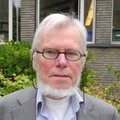Archive
23 December 2021
Super-fast technique measures heme enzyme reaction as it happens
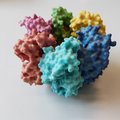
Researchers from TU Delft found an unexpected new enzyme intermediate at work in enzymes that contain heme, a cofactor that’s vital for many processes in our body such as the breaking down of toxins in the liver. The researchers used new, rapid techniques, which are less invasive than existing methods. The results, published in ACS Catalysis, increase our understanding of heme proteins and enzymes and how they can be engineered.
27 October 2021
Making artificial leather while processing wastewater
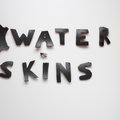
Leather is a strong product but has been getting bad press lately due to the fact that it is made of animal skins and the production process is a burden on the environment. The TU Delft student team WaterSkins has come up with a very sustainable alternative: artificial leather made during the treatment of wastewater.
29 April 2021
Researchers create living material based on algae
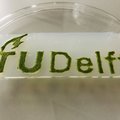
Researchers led by Delft University of Technology (TU Delft) used 3D printing to create a novel, environmentally-friendly and living material made of algae that has many potential applications.
07 April 2021
Using molecular sieves to adjust the taste of non-alcoholic beer
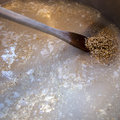
Researcher Deborah Gernat has created a new method to further develop the taste of non-alcoholic beer, in collaboration with Heineken. The technique, which is based on molecular sieves, gives brewers a new tool to bring the taste of non-alcoholic beer closer to that of regular beer. The first tests showed that the sweet 'wort taste' that often characterizes alcohol-free beer can be reduced using this method. On April 9th, Deborah Gernat will receive her doctorate on this subject at Delft University of Technology (TU Delft).
11 January 2021
Delft researchers build artificial chromosome
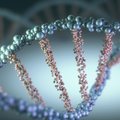
Biotechnologists at Delft University of Technology have built an artificial chromosome in yeast. The chromosome can exist alongside the natural yeast chromosomes, and serves as a platform to safely and easily add new functions to the micro-organism. Researchers can use the artificial chromosome to convert yeast cells into living factories capable of producing useful chemicals and even medicines.
07 January 2021
ERC Proof of Concept grant for Frank Hollmann
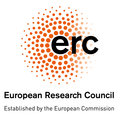
Frank Hollmann (Biotechnology) has been awarded a Proof of Concept grant by the European Research Council. He is one of 55 ERC grant holders that are set to receive top-up funding to explore the commercial or innovation potential of the results of their EU-funded research.
17 December 2020
Delft researchers chart the potential risks of 'free-floating DNA'

We don’t realize it, but loose strands of DNA end up in nature via our wastewater. As of yet, it is unclear how much this 'free-floating DNA' impacts environmental and public health. Researchers at Delft University of Technology (TU Delft) have now found a way to determine just how much potentially harmful DNA ends up in our wastewater. They have developed a method that can isolate such ‘free floating DNA’ from wastewater, which gives them the means to determine the extent of the problem. The results of their work will officially be printed in Water Research in February 2021, but have already been pre-published online.
16 December 2020
Platform Bio-Economie consolidates broad bioeconomy strategy by appointment of Chair of the Board
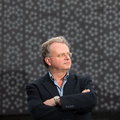
Platform Bio-Economie consolidates its strategic reorientation towards becoming the leading industry organisation targeting the development of a fully renewable and sustainable, CO2-neutral society in which product chains are as circular and biobased as possible. Luuk van der Wielen with over 30 years of mixed academic/industrial experience in developing bioeconomy technology, business and policies has been appointed to chair the board.
15 December 2020
Five 20k grants for cross-campus bioengineering research projects
04 December 2020
In Memoriam: Prof.dr.ir. Herman van Bekkum (1932 – 2020)
